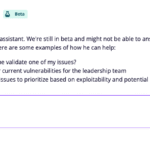Cooler Master launches MasterFrame 500 Mesh open-frame ATX chassis

Cooler Master has introduced the MasterFrame 500 Mesh to North American builders, offering an open-frame ATX chassis designed with customization and airflow in mind.
Built on its FreeForm 2.0 design approach, the new case combines flexibility, access, and thermal performance in a format that supports a wide range of system sizes.
Deception is evolving, and security teams need to catch up

Attackers are finding new ways to get inside company systems, and deception is playing a bigger role than ever, according to the latest LevelBlue Threat Trends Report.
Threat actors are leaning on tactics like social engineering and AI tools to move quickly, stay hidden, and then extend their reach once inside. Even experienced users can be tricked into opening the door without realizing until it's too late.
Autonomous DLP platform aims to fight insider threats

Security operations teams often struggle with complex tools, legacy pattern-matching DLP, manual policy tuning, and alert fatigue. This can slow investigations, increase overhead, and reduce security effectiveness.
While traditional DLP solutions aim to tackle these challenges, they require constant human intervention, generate high false positive rates, and often miss sophisticated threats that bypass simple pattern recognition. That’s why Nightfall is launching an autonomous Data Loss Prevention platform.
Google makes cheaper YouTube Premium Lite available more widely

Google has announced that it is expanding the availability of the recently added cheaper tier of YouTube Premium. The YouTube Premium Lite package costs a little over half the price of the regular YouTube Premium subscription which should serve as a lure to potential customers who have been sitting on the fence.
The lower price, inevitably, means having to make some compromises, but YouTube Premium Lite delivers what most people will be looking for – a broadly ad-free experience on YouTube.
Opera files antitrust complaint against Microsoft in Brazil, alleging unfair browser restrictions on Windows

Opera has submitted a formal complaint to Brazil’s Administrative Council for Economic Defense (CADE) alleging that Microsoft’s practices unfairly restrict browser choice on Windows devices.
The Norwegian company argues that Microsoft’s dominance in the operating system market allows it to give an artificial edge to its Edge browser, at the expense of competitors, such as Opera (naturally), and Brazilian users.
UK VPN interest surges in response to new Online Safety Act

The UK’s new Online Safety Act came into force this week, aimed at protecting youngsters with age verification to access adult and harmful content. However, it’s seen other material being blocked and sparked concern among free speech campaigners about government censorship.
It’s not too surprising then that there’s been a lot of interest in VPNs since the act came into force. VPNMentor has seen a 6,430 percent peak surge in VPN demand since the act’s introduction.
Microsoft launches Copilot Mode in Edge – is it heaven or hell?

Microsoft has a new experiment for its web browser. Copilot Mode in Edge is an AI-powered mode which is perfect for anyone who wants to completely embrace artificial intelligence when browsing the web.
For anyone who feels that AI is already difficult to avoid, there is good news. Copilot Mode in Edge is optional, so you are not obliged to use it even if you have made Microsoft Edge your browser of choice.
Why real-time visibility is key to runtime security [Q&A]

Cloud threats are evolving faster than most security teams can respond, and traditional security tools are struggling to keep pace. According to IBM’s 2024 Cost of a Data Breach Report it now takes an average of 258 days to detect and contain a breach -- giving attackers more than enough time to access sensitive data and move laterally through cloud infrastructure undetected.
We spoke to CEO of Upwind, Amiram Schacha, to learn why organizations need real-time visibility and protection at the runtime layer -- where threats actually occur -- in order to close this growing security gap.
Microsoft and KnowBe4 bring real-time security coaching to the browser

KnowBe4 has announced a new integration between its SecurityCoach platform and Microsoft Edge for Business, aiming to reduce risky user behavior online by offering in-the-moment security guidance.
The feature is available globally now and is designed to give organizations better control over human-centered security threats without disrupting productivity.
Photoshop brings low-res images back to life with Generative Upscale

Photoshop’s latest updates bring a fresh set of tools to the desktop, web, and mobile. From blending elements into scenes to cleaning up cluttered images and scaling up resolution, it probably won't come as any surprise to learn these tools use AI to handle a lot of the technical heavy lifting.
Creative ideas often hit a wall when time gets lost fixing shadows, matching lighting, or removing small distractions. The newest Photoshop features target exactly those problems, helping you get past the tedious parts faster.
New AI approach aims to cut disruption from data interchange errors

Electronic data interchange (EDI) is the lifeblood of modern business, but even a small error -- be it a connection failure, data quality issue, transformation failure, or data transmission issue for example -- can rapidly cascade, generating hundreds or even thousands of issues.
This can become a domino effect tipping over into longer root cause identification, inefficiency in managing a raft of open tickets, and a prolonged time to resolution. These factors can increase operational risk, leading to downstream supply chain issues that can jeopardize valuable business relationships.
Browser security tools struggle to detect malicious extensions

Despite the expanding use of browser extensions, the majority of enterprises and individuals still rely on labels such as ‘Verified’ and ‘Chrome Featured’ provided by extension stores as a security indicator.
However, new research from SquareX points up architectural flaws in how browser security tools work which mean they’re unable to detect or prevent the latest advancements in malicious browser extension attacks.
GregAI helps security teams fix real problems faster

Cybersecurity exposure management company Intruder has introduced GregAI, an AI-powered security analyst that, unlike generic AI assistants, has full visibility into each user’s security environment.
Currently in beta, GregAI is available to free trial users and customers on Intruder’s Cloud, Pro, and Enterprise plans. The assistant is named after Intruder’s original mascot, following a design file mix-up involving a designer named Greg.
Managing cyber risks is getting harder

A new study reveals that that 90 percent of leaders find managing cyber risks harder today than they did five years ago, resulting in higher reports of burnout (47 percent), including more than one in ten who say they’re on the verge of quitting.
The report from Bitsight shows the leading causes of poor cyber risk management, and therefore burnout, include an explosion of AI (39 percent), and rapidly expanding attack surfaces (38 percent).
Fable Security launches with $31m to tackle human risk in cybersecurity

Fable Security, a new human risk management platform, has launched with $31 million in funding from Greylock Partners and Redpoint Ventures. It is already working with enterprises across finance, healthcare, logistics, and technology, helping security teams reduce employee-driven risk with targeted, real-time interventions.
Fable was founded by Nicole Jiang and Dr. Sanny Liao, both early team members at Abnormal AI. At that company, they helped build and scale behavioral-based security products and saw firsthand how the threat landscape was shifting.
BetaNews, your source for breaking tech news, reviews, and in-depth reporting since 1998.
© 1998-2025 BetaNews, Inc. All Rights Reserved. About Us - Privacy Policy - Cookie Policy - Sitemap.




